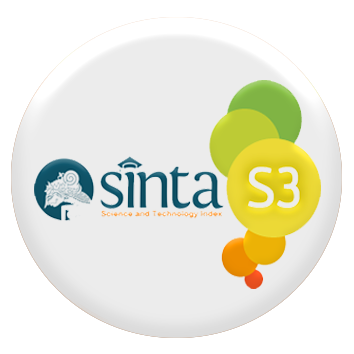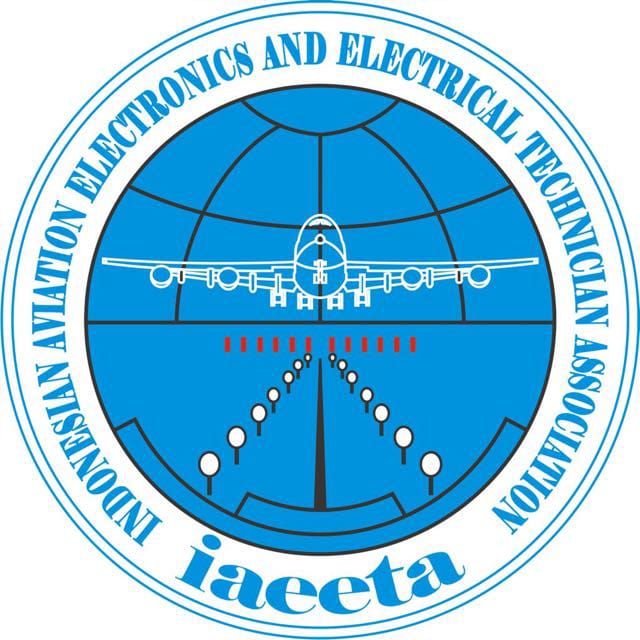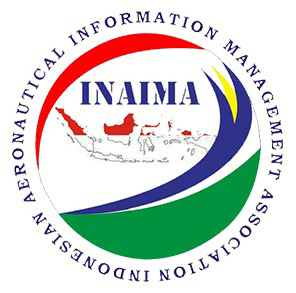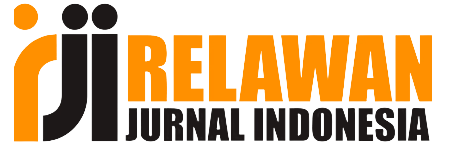Kepemimpinan Dosen Dalam Pembelajaran Daring Di Masa Pandemi Covid 19: Sebuah Kajian Pada Taruna Teknik Penerbangan
Abstract
The COVID-19 pandemic, which has spread globally, has resulted in a significant disruption of the world order, encompassing political, economic, social, and educational domains. This study aims to explore the leadership of lecturers in online learning during the Covid 19 pandemic. This study was designed using mixed research both on data collection and data analysis carried out. Primary data collection was carried out by distributing questionnaires to cadets who were selected as respondents. Furthermore, in-depth interviews were conducted with cadet representatives per randomly selected study program. The data obtained will be analyzed using simple statistical equations using a percentage descriptive formula. After obtaining quantitative research results, a triangulation process is then carried out with interview data. The interview was conducted to elaborate the answers on the questionnaire to be carried out a triangulation process based on the concept of lecturer leadership which is the basis of theory. The triangulation process is also carried out by comparing research findings with literature reviews of lecturer leadership in previous studies. The results showed that the leadership of lecturers in online learning during the Covid-19 period was carried out with three criteria, namely conceptual skills, human skills, and technical skills. Based on the results of the questionnaire obtained, it is known that all three have been carried out by lecturers using various tactics in influencing others as an inseparable part of the lecturer's leadership. The leadership style of lecturers, as demonstrated by the three criteria of skills and tactics used in this study to influence others, may serve as a valuable reference for both lecturers at Politeknik Penerbangan Indonesia Curug and those at other universities.
Downloads
References
Al-Sholi, H. Y., Shadid, O. R., Alshare, K. A., & Lane, M. (2021). An agile educational framework: A response for the covid-19 pandemic. Cogent Education, 8(1). https://doi.org/10.1080/2331186X.2021.1980939
Albert, N. M., Trochelman, K., Meyer, K. H., & Nutter, B. (2009). Characteristics associated with racial disparities in illness beliefs of patients with heart failure. Behavioral Medicine, 35(4), 112–125. https://doi.org/10.1080/08964280903334519
Andy-Wali, H. A., & Wali, A. F. (2018). Lecturers’ Leadership Practices and Their Impact On Students’ Experiences of Participation with Implications for Marketing Higher Education Services. Higher Education for the Future, 5(1), 40–60. https://doi.org/10.1177/2347631117738640
Asma. (2017). PEGARUH KEPEMIMPINAN GURU TERHADAP MOTIVASI BELAJAR PESERTA DIDIK DI SMP NEGERI 5 ENREKANG Skripsi [UIN ALAUDDIN MAKASSAR]. In Antimicrobial Agents and Chemotherapy (Vol. 58, Issue 12). https://doi.org/10.1128/AAC.03728-14
BAZELEY, P., & JACKSON, K. (2013). Qualitative data analysis with NVIVO (Second). SAGE Publications Inc. https://doi.org/10.1080/02607476.2013.866724
Bello, B. A. (2015). Relevance of Fiedler’S Contingency Laedership Theory To the Management of School Organization. ATBU, Journal of Science, Technology & Education (JOSTE);, 3(2), 182–189. http://weekly.cnbnews.com/news/article.html?no=124000
Berestova, A., Gayfullina, N., & Tikhomirov, S. (2020). Leadership and functional competence development in teachers: World experience. International Journal of Instruction, 13(1), 607–622. https://doi.org/10.29333/iji.2020.13139a
Berry, B., & Hess, F. M. (2013). Expanded learning, expansive teacher leadership. Phi Delta Kappan, 94(5), 58–61. https://doi.org/10.1177/003172171309400513
Bin, P., Zhu, C., Shi, Y., Ahn, T. U., & Hu, R. (2021). Gender Difference in Entrepreneurial Intentions: A New Perspective from College Students to Facilitate Teacher Leadership in Entrepreneurial Education. Chinese Education and Society, 54(5–6), 222–240. https://doi.org/10.1080/10611932.2021.1990630
Blankenberger, B., & Williams, A. M. (2020). COVID and the impact on higher education: The essential role of integrity and accountability. Administrative Theory and Praxis, 42(3), 404–423. https://doi.org/10.1080/10841806.2020.1771907
Bowen, P., Rose, R., & Pilkington, A. (2017). MIXED METHODS- THEORY AND PRACTICE. SEQUENTIAL, EXPLANATORY APPROACH. International Journal of Quantitative and Qualitative Research Methods, 5(2).
Bryman, A. (2003). Research methods and organization studies. In Research Methods and Organization Studies. https://doi.org/10.4324/9780203359648
Cao, W. (2022). Correlation of University Lecturer Leadership Styles, Students Satisfaction, and Learning Outcomes During the COVID-19 Pandemic. International Journal of Technology-Enhanced Education, 1(1), 1–17. https://doi.org/10.4018/ijtee.308468
Caruth, G. D. (2013). Demystifying Mixed Methods Research Design: A Review of the Literature. Mevlana International Journal of Education (MIJE), 3(2), 112–122. https://doi.org/10.1541/ieejpes1972.103.561
Creswell, J. W. (2016). 30 Essential Skills for the Qualitative Researcher.
Creswell, J. W., & Báez, J. C. (2021). 30 ESSENTIAL SKILLS FOR THE QUALITATIVE RESEARCHER Second Edition. In Gastronomía ecuatoriana y turismo local. (Vol. 1, Issue 69).
Cutri, R. M., & Mena, J. (2020). A critical reconceptualization of faculty readiness for online teaching. Distance Education, 41(3), 361–380. https://doi.org/10.1080/01587919.2020.1763167
Cutri, R. M., Mena, J., & Whiting, E. F. (2020). Faculty readiness for online crisis teaching: transitioning to online teaching during the COVID-19 pandemic. European Journal of Teacher Education, 43(4), 523–541. https://doi.org/10.1080/02619768.2020.1815702
DeDeyn, R. (2021). Teacher leadership and student outcomes in a US University Intensive English Program. TESL-EJ, 24(4).
Dewiyani, L. (2017). PENGEMBANGAN MODEL KEPEMIMPINAN DOSEN DALAM RANGKA MENGHASILKAN LULUSAN SARJANA TEKNIK INDUSTRI YANG BERJIWA ISLAMI. JISI: Jurnal Integrasi Sistem Industri. https://jurnal.umj.ac.id/index.php/jisi/article/view/1041
Diva, A. S., Chairunnisa, A. A., & Mufidah, T. H. (2021). Pembelajaran Daring di Masa Pandemi Covid-19 Andi. Current Research in Education: Series Journal, 01(01), 1–10.
Dominguez, S., & Hollstein, B. (2014). Mixed Methods Soial Networks Research: An Introduction. In Mixed Methods Social Networks Research: Design and Applications. Cambridge University Press.
El Masri, A., & Sabzalieva, E. (2020). Dealing with disruption, rethinking recovery: Policy responses to the COVID-19 pandemic in higher education. Policy Design and Practice, 3(3), 312–333. https://doi.org/10.1080/25741292.2020.1813359
Enoh, M. (2006). Pengaruh Kepemimpinan Dosen, Kualitas Layanan Akademik, dan Kualitas Layanan Administratif terhadap Tingkat Kepuasan Mahasiswa. Jurnal Ilmu Pendidikan, 13(2), 113–121.
Flick, U. (2004). Introducing Research Methodology A Beginner’s Guide to Doing a Research Project. In European University Institute (Second, Issue 2). SAGE Publications Inc. https://eur-lex.europa.eu/legal-content/PT/TXT/PDF/?uri=CELEX:32016R0679&from=PT%0Ahttp://eur-lex.europa.eu/LexUriServ/LexUriServ.do?uri=CELEX:52012PC0011:pt:NOT
Garg, N. (2020). Exploring role of gratitude in developing teacher leadership in Indian universities. International Journal of Educational Management, 34(5), 881–901. https://doi.org/10.1108/IJEM-07-2019-0253
Garg, Naval, & Gera, S. (2020). Gratitude and leadership in higher education institutions: Exploring the mediating role of social intelligence among teachers. Journal of Applied Research in Higher Education, 12(5), 915–926. https://doi.org/10.1108/JARHE-09-2019-0241
Grant, C. (2006). Emerging Voices on Teacher Leadership:Some South African Views. Educational Management Administration & Leadership, 34(4), 511–532. https://doi.org/10.1177/1741143206068215
Husna, S. (2015). Leadership Style of Lecturer Influence on Academic Performance of TVET Student. Journal of Resources Development and Management, 9, 20–23.
Johnson, R., & Onwuegbuzie, A. (2004). Mixed Methods Research: A Research Paradigm Whose Time Has Come. Educational Researcher, 33(7), 14–26. http://edr.sagepub.com/content/33/7/14.short
Jung, J., Horta, H., & Postiglione, G. A. (2021). Living in uncertainty: the COVID-19 pandemic and higher education in Hong Kong. Studies in Higher Education, 46(1), 107–120. https://doi.org/10.1080/03075079.2020.1859685
Kang, D.-M., & Zhu, J. (2022). Tertiary-level students’ L2 reticence in relation to teacher leadership in an English-medium classroom. System, 106. https://doi.org/10.1016/j.system.2022.102776
König, J., Jäger-Biela, D. J., & Glutsch, N. (2020). Adapting to online teaching during COVID-19 school closure: teacher education and teacher competence effects among early career teachers in Germany. European Journal of Teacher Education, 43(4), 608–622. https://doi.org/10.1080/02619768.2020.1809650
Kristina, M., Sari, R. N., & Nagara, E. S. (2020). Model Pelaksanaan Pembelajaran Daring Pada Masa Pandemi Covid 19 Di Provinsi Lampung. Idaarah: Jurnal Manajemen Pendidikan, 4(2), 200. https://doi.org/10.24252/idaarah.v4i2.16945
Listiningrum, H. D., Tobari, & Kesumawati, N. (2020). International Journal of Educational International Journal of Educational Review. International Journal of Educational Review, 2(1), 1–17.
Manuel Delgado Bardales, J., Freddy Rubio Luna Victoria, E., Valera Vega, O., Mabel Contreras Julián, R., del Pilar Palomino Alvarado, G., Sánchez Dávila, K., Meni Rodríguez Espejo, Y., Lowy, D. A., & Ali Azin, S. (2021). Effect of teaching leadership styles on the prevention of adolescence pregnancy: a case study conducted at Universidad César Vallejo, Peru [version 1; peer review: 1 approved with reservations] Open Peer Review Approval Status. https://doi.org/10.12688/f1000research.28440.1
Martínez, M. F. C., Velazco, D. J. M., Cejas, M. N., & Corozo, J. P. M. (2021). Pedagogical leadership within the framework of human talent management: A comprehensive approach from the perspective of higher education in Ecuador | Педагогическое лидерство как сфера развития человеческих способностей: комплексный подход в системе высш. Integration of Education, 25(1), 8–21. https://doi.org/10.15507/1991-9468.102.025.202101.008-021
Mason, J. (2006). Mixing methods in a qualitatively driven way. Qualitative Research, 6(1), 9–25. https://doi.org/10.1177/1468794106058866
Muhammad, A. F. N. (2017). Model Kepemimpinan Guru dalam Proses Pembelajaran Di Kelas pada Jenjang SD/MI. Al Ibtida: Jurnal Pendidikan Guru MI, 4(1), 29. https://doi.org/10.24235/al.ibtida.snj.v4i1.1443
Murphy, M. P. A. (2020). COVID-19 and emergency eLearning: Consequences of the securitization of higher education for post-pandemic pedagogy. Contemporary Security Policy, 41(3), 492–505. https://doi.org/10.1080/13523260.2020.1761749
Newby, P. (2014). Research methods for education, second edition. In Research Methods for Education, Second Edition. https://doi.org/10.4324/9781315758763
Nurlaela, & Sugiyanto. (2019). Pengaruh Kinerja Dosen dan Kualitas Layanan Administrasi Akademik terhadap Kepuasan Mahasiswa Dampaknya terhadap Prestasi Belajar di Universitas Pamulang Tangerang Selatan. Prosiding Seminar Nasional Humanis 2019, 577–589.
Ouma, R. (2021). Beyond “carrots” and “sticks” of on-line learning during the COVID-19 pandemic: A Case of Uganda Martyrs University. Cogent Education, 8(1). https://doi.org/10.1080/2331186X.2021.1974326
Pounder, J. S. (2006). Transformational Classroom Leadership:The Fourth Wave of Teacher Leadership? Educational Management Administration & Leadership, 34(4), 533–545. https://doi.org/10.1177/1741143206068216
Prastiawan, A., Gunawan, I., Putra, A. P., Dewantoro, D. A., Cholifah, P. S., Nuraini, N. L. S., Rini, T. A., Pradipta, R. F., Raharjo, K. M., Prestiadi, D., & Surahman, E. (2020). School Leadership Skills in Educational Institutions. 501(Icet), 438–441. https://doi.org/10.2991/assehr.k.201204.085
Sadikin, A., & Hamidah, A. (2020). Pembelajaran Daring di Tengah Wabah Covid-19. Biodik, 6(2), 214–224. https://doi.org/10.22437/bio.v6i2.9759
Sales, A., Moliner, L., & Francisco Amat, A. (2017). Collaborative professional development for distributed teacher leadership towards school change. School Leadership and Management, 37(3), 254–266. https://doi.org/10.1080/13632434.2016.1209176
Salisu, B., & Awang, S. R. (2019). Pretesting a political skill scale in a sample of teacher-leaders from polytechnics in northeast Nigeria. Psychological Thought, 12(2), 129–144. https://doi.org/10.5964/PSYCT.V12I2.387
Septiani, N. (2019). Gaya Kepemimpinan Pendidikan. Pendidikan Islam, v, 1–10.
Silitonga, T. B. (2021). Lecturer Leadership in Influencing Learning Class Members Faced with the Covid-19 Pandemic Conditions. International Journal of Science and Society, 3(2), 330–351. https://doi.org/10.54783/ijsoc.v3i2.345
Snoek, M., Enthoven, M., Kessels, J., & Volman, M. (2015). International Journal of Leadership in Education Theory and Practice Increasing the impact of a Master’s programme on teacher leadership and school development by means of boundary crossing. https://doi.org/10.1080/13603124.2015.1025855
Ssemugenyi, F., & Nuru Seje, T. (2021). A decade of unprecedented e-learning adoption and adaptation: Covid-19 revolutionizes teaching and learning at Papua New Guinea University of Technology (PNGUoT): “Is it a wave of change or a mere change in the wave?” Cogent Education, 8(1). https://doi.org/10.1080/2331186X.2021.1989997
Stange, K. C., Crabtree, B. F., & Miller, W. L. (2006). Publishing multimethod research. Annals of Family Medicine, 4(4), 292–294. https://doi.org/10.1370/afm.615
Suhana, Liana, L., Yunianto, A., & Fauza, D. H. (2017). Pengaruh gaya kepemimpinan transformasional dan pendekatan pembelajaran pada prestasi akademik mahasiswa. 177–197.
Sulistiyarini, D. (2015). PENGARUH MOTIVASI DAN KEPEMIMPINAN DOSEN TERHADAP HASIL BELAJAR LOGIKA MATEMATIKA MAHASISWA PROGRAM STUDI PENDIDIKAN …. In Jurnal Pendidikan Informatika dan Sains. journal.ikippgriptk.ac.id. http://journal.ikippgriptk.ac.id/index.php/saintek/article/download/68/66
Suwandan, I. G. M., Suasana, I. G. A. K. G., & Satrya, I. G. B. H. (2015). Peran Kepemimpinan Transformasional Dosen di Fakultas Ekonomi dan Bisnis Universitas Udayana. In Paper Knowledge Kepemimpinan Universitas Udayana.
Tarmizi. (2016). PENGARUH KEPEMIMPINAN DOSEN DAN KEMAMPUAN PRAKTIKUM TERHADAP PRESTASI BELAJAR MAHASISWA DALAM MATAKULIAH FISIKA MODERN Tarmizi. Serambi Akademica, IV(1), 85–90. http://202.4.186.66/JFE/article/view/10693
Trigueros, R., Padilla, A., Aguilar-Parra, J. M., Mercader, I., López-Liria, R., & Rocamora, P. (2020). The influence of transformational teacher leadership on academic motivation and resilience, burnout and academic performance. International Journal of Environmental Research and Public Health, 17(20), 1–11. https://doi.org/10.3390/ijerph17207687
van der Spoel, I., Noroozi, O., Schuurink, E., & van Ginkel, S. (2020). Teachers’ online teaching expectations and experiences during the Covid19-pandemic in the Netherlands. European Journal of Teacher Education, 43(4), 623–638. https://doi.org/10.1080/02619768.2020.1821185
Weismann, I. T. . (2013). Analisis Pengaruh Gaya Kepemimpinan Dosen Terhadap Motivasi Belajar Mahasiswa Sekolah Tinggi Theologia Jaffray Makassar. Jurnal Jaffray, 11(1), 67. https://doi.org/10.25278/jj71.v11i1.75
Whitney, A. E. (2013). When university faculty nurture teacher leadership: Horizontal practices and values in a professors work with teachers. International Journal of Leadership in Education, 16(1), 71–93. https://doi.org/10.1080/13603124.2012.707687
Zhang, M., Tian, J., Ni, H., & Fang, G. (2021). Exploring Teacher Leadership and the Factors Contributing to It: An Empirical Study on Chinese Private Higher Education Institutions. SAGE Open, 11(1). https://doi.org/10.1177/21582440211002175
Copyright (c) 2023 Pribadi Asih

This work is licensed under a Creative Commons Attribution-NonCommercial-NoDerivatives 4.0 International License.



.png)


1.png)
.png)












